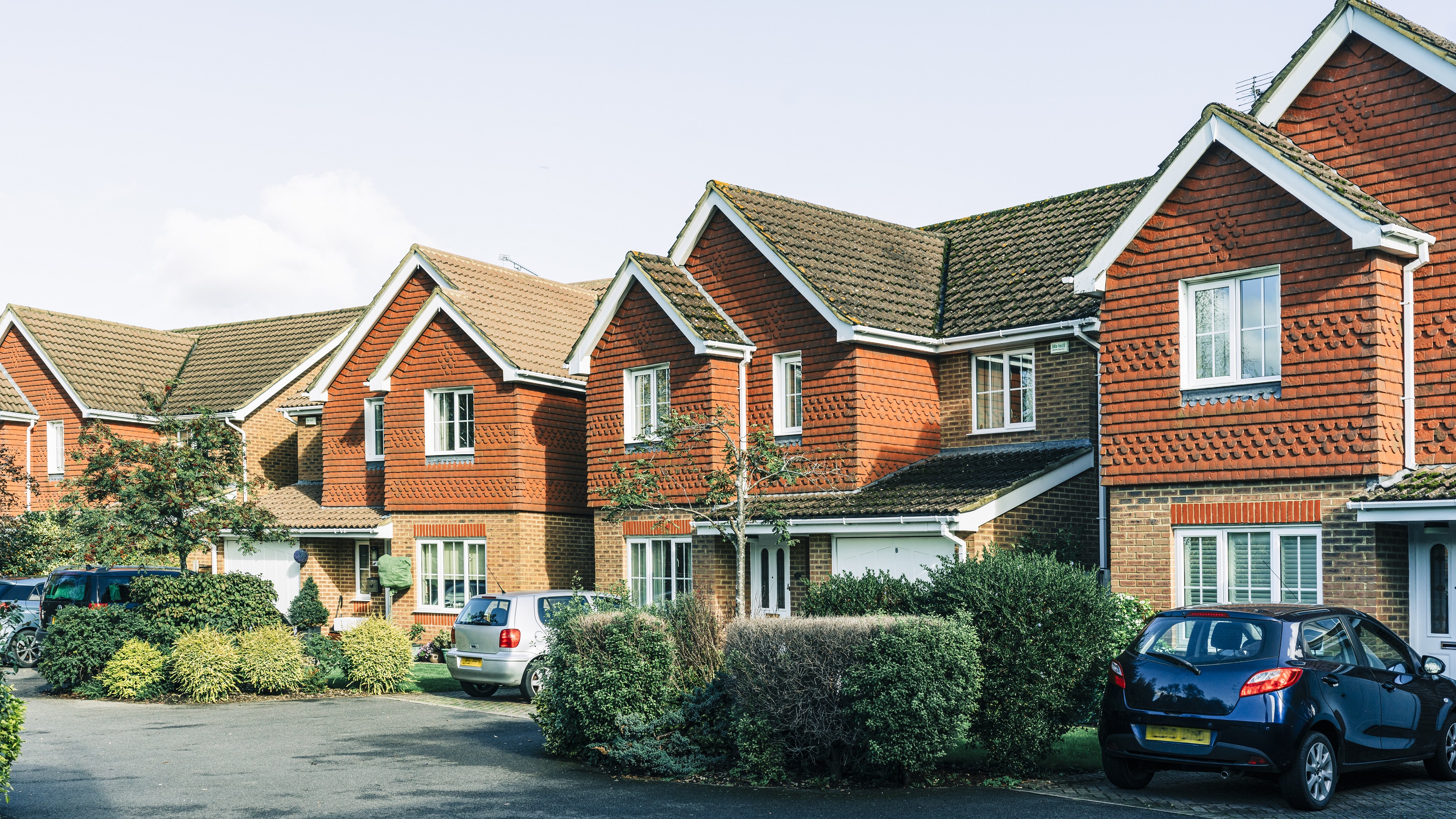
If you hate paying taxes, and you want to keep more of your income, you might consider moving to one of these states that have a relatively low tax burden for middle-income families. After all, the cost of living for families considered to be “middle-class” is high enough as it is, and who doesn’t want to pay less taxes?
'Tax friendly' states for middle-income families
Median salaries can differ greatly from state to state, so we considered each state's median annual salary to determine which states have the lowest tax burden for households with middle incomes.
Then, we calculated the average annual tax spent on three tax categories: state income tax, property taxes, and sales taxes on essential items (groceries, diapers, and gas).
States with the lowest tax burden are considered "tax-friendly " for these rankings.
Sales tax was not calculated for states that don't tax essentials at the state level. However, it is important to note that local sales taxes may apply.
The states with the lowest percentage of income spent on state taxes made our list.
And here they are.
Note: Full details about the methodology Kiplinger used to rank the states for this story are available at the end of the article.
Median annual household income: $81,134
Percent of income spent on taxes: 2.78%
Most states still tax diapers, but Nevada is not one of them. However, no personal income tax and low property taxes relative to other states make Nevada an overall tax-friendly state for middle-income families and households (and help make the Silver State one of the best tax-friendly states for investing). Thus, Nevada takes the top ranking in low-tax states for middle-class families.
- Average income tax: $0
- Median annual property taxes: $2,143
- Average sales tax for essentials: $111.43
- Total annual amount spent on taxes: $2,254.43
Median annual household income: $75,532
Percent of income spent on taxes: 2.81%
Wyoming taxes some essentials, like diapers. Even so, no state income tax and reasonable property taxes (when compared to those in other states) place Wyoming as the second-highest rated on our list for middle-income households, when it comes to low tax burden.
- Average income tax: $0
- Median annual property taxes: $1,947
- Average sales tax for essentials: $172.37
- Total annual amount spent on taxes: $2,119.37
Median annual household income: $71,997
Percent of income spent on taxes: 3.17%
Tennessee taxes diapers. It is also one of the 10 states that still taxes groceries. However, the state does not have a personal income tax, and property taxes are on the low end when compared to those in other states, so Tennessee comes in at number three in our ranking.
- Average income tax: $0
- Median annual property taxes: $1,488
- Average sales taxes on essentials: $794.56
- Total annual amount spent on taxes: $2,282.56
Related: 10 Cheapest Places to Live in Tennessee.
Median annual household income: $77,871
Percent of income spent on taxes: 3.97%
North Dakota does have a personal income tax, but the rates for middle-class households are low compared to most other states that impose income tax. The state no longer taxes diapers, and property taxes are reasonable compared to others on this list.
- Average income tax: $432
- Median annual property taxes: $2,550
- Average sales tax on essentials: $107.64
- Total amount spent on taxes: $3,089.64
Median annual household income: $77,735
Percent of income spent on taxes: 4.09%
Florida has no personal income tax and doesn't tax groceries. Additionally, a Florida tax relief bill last year eliminated the state sales tax on numerous baby and toddler essentials, including diapers, baby wipes, and strollers. Average property taxes are not extremely high, but they aren’t extremely low either, as compared to those in other states. However, you might be able to find a deal in one of the ten cheapest places to live in Florida.
- Average income tax: $0
- Median annual property taxes: $2,993
- Average sales tax on essentials: $184.39
- Total annual amount spent on taxes: $3,177.39
Median annual household income: $95,665
Percent of income spent on taxes: 4.20%
Alaska doesn’t have a personal income tax, and is one of the five states with no sales tax. Plus, gas taxes in the state are some of the lowest in the nation. However, local tax jurisdictions may tax groceries and diapers. Alaska winds up toward the middle of our ranking due to its high property taxes.
- Average income tax: $0
- Median annual property taxes: $3,976
- Average sales tax on essentials: $41.89
- Total amount spent on taxes: $4,017.89
Median annual household income: $81,486
Percent of income spent on taxes: 4.45%
Arizona has a state income tax. The state also taxes diapers. But there is no state tax on groceries, and Arizona’s average property taxes aren’t very high compared to those in other states. Plus, the state gas tax is low, so Arizona takes the number seven spot on this list.
- Average income tax: $1,629.72
- Median annual property taxes: $1,828
- Average sales tax on essentials: $170.71
- Total amount spent on taxes: $3,628.43
Median annual household income: $76,881
Percent of income spent on taxes: 4.82%
South Dakota taxes essential items, including diapers and groceries. Property taxes in South Dakota are not very low, either, compared to those in other states. But because the state has no state income tax, South Dakota ranks in the number eight spot for tax-friendly states for middle-income families and households.
- Average income tax: $0
- Median annual property taxes: $2,940
- Average sales tax on essentials: $766.54
- Total amount spent on taxes: $3,706.54
Median annual household income: $99,389
Percent of income spent on taxes: 5.12%
Washington has high property taxes when compared with other states, and just increased its long-term capital gains tax this year. Washington taxes diapers, too, but the state still makes this list since the state has no personal income tax.
- Average income tax: $0
- Median annual property taxes: $4,729
- Average sales tax on essentials: $361.55
- Total amount spent on taxes: $5,090.55
Read More: Washington Approves Capital Gains Tax Increase: Who Pays?
Median annual household income: $60,986
Percent of income spent on taxes: 5.20%
Louisiana has one of the highest sales tax rates in the nation, and the state does impose an income tax. Still, Louisiana doesn't tax essentials like groceries and diapers. Plus, low property taxes compared to other states cause the Bayou State to barely make this list, at number ten.
- Average income tax: $1,884.48
- Median annual property taxes: $1,187
- Average sales tax on essentials: $97.81
- Total amount spent on taxes: $3,169.29

Full Methodology
Middle-class income and taxes methodology
Median annual household salaries for each state were collected from the latest U.S. Census Bureau data (the most recent 1-year estimate data available).
Personal income taxes were calculated using an ADP salary calculator. We used monthly pay periods and opted not to factor in extra withholdings or allowances. Income taxes paid vary from filer to filer and can depend on your income, filing status, and the number of credits and deductions you qualify for when filing your taxes.
Total average grocery costs were calculated from data reported by the World Population Review.
The average monthly diaper expense is based on estimates from the National Diaper Bank Network. State gas tax rates were used to calculate the average gas tax paid per family in a year.
We used sales tax rates (average combined local and state sales tax rates) provided by the Tax Foundation to calculate the average sales taxes spent on essential items. Tax spent on essential items may be higher than $0 in some localities, even if essentials aren't taxed at the state level.
The data for median annual property taxes paid is based on data provided by the U.S. Census Bureau.
Average taxes spent were added for each state to find the total percentage of household income paid to state taxes. Dollar amounts were rounded to the nearest cent. Percentages are rounded to the nearest tenth of a percent.
To determine what “middle income” means, the median household income for each state was used. However, the definition of “middle-income” can vary greatly. For purposes of this ranking, “family” means any household with at least one adult still raising at least one child. The amount of taxes paid can vary depending on several factors, including family size and the number of adults in the household who work.







